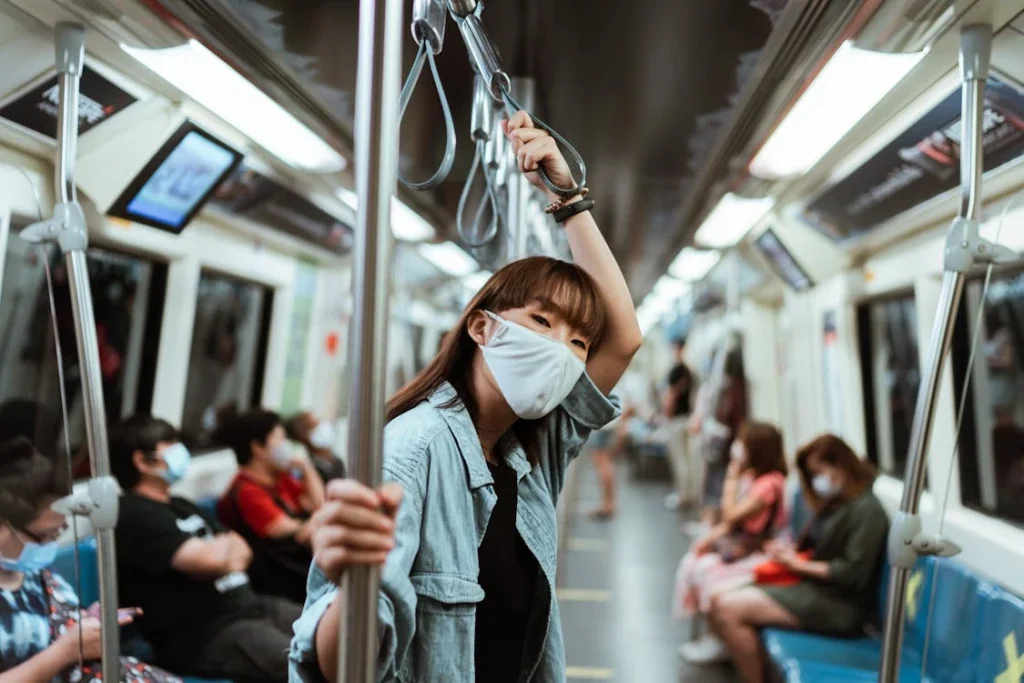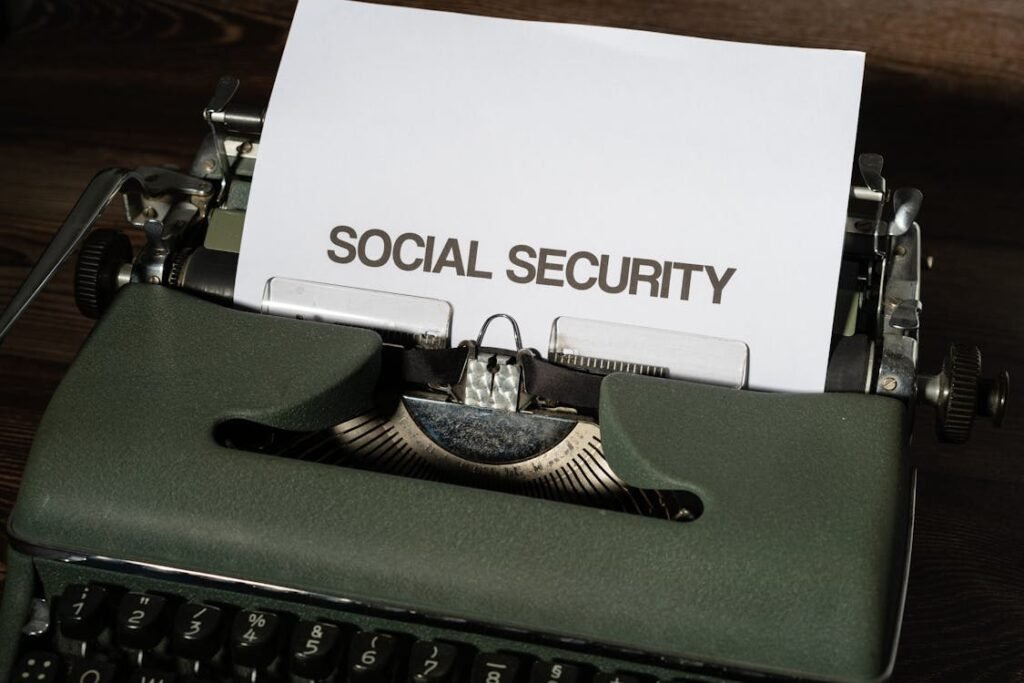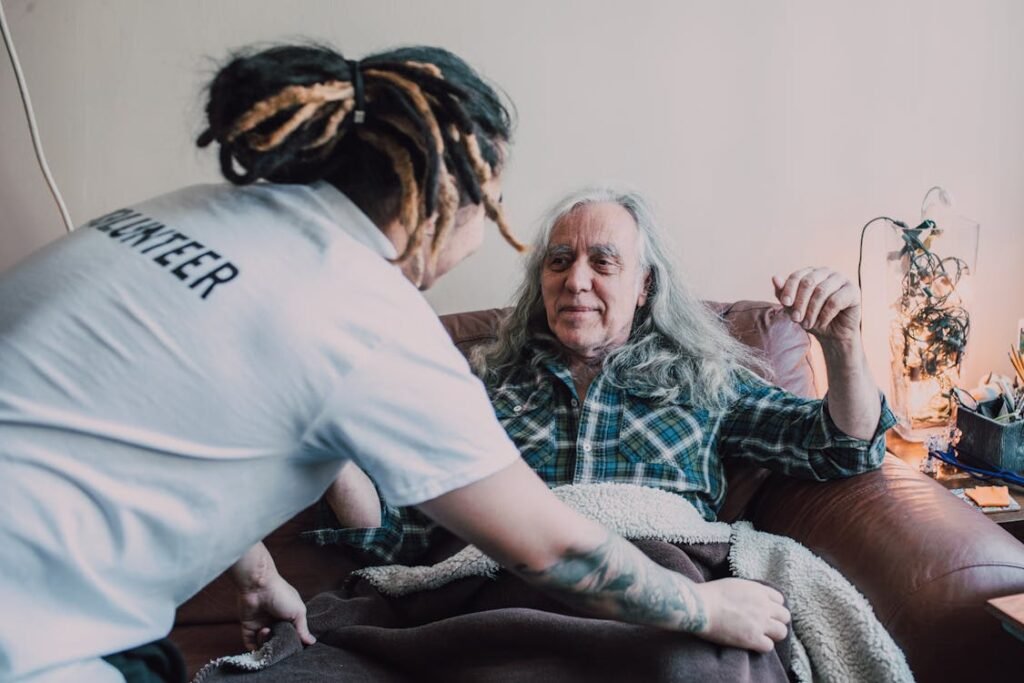For millions of people with disabilities in India, daily life is not just about overcoming physical barriers—it is also about navigating legal challenges that make access to rights and opportunities difficult. Even though laws exist to protect their rights, poor enforcement, bureaucratic delays, and a lack of awareness often leave disabled individuals struggling for basic necessities like education, employment, and accessibility.
The Rights of Persons with Disabilities (RPWD) Act, 2016, is the main law that guarantees protection and equal opportunities for people with disabilities. However, in reality, many still face discrimination at workplaces, inaccessible public transport, and legal hurdles in claiming benefits. The process of obtaining a disability certificate, accessing government schemes, or even fighting for equal treatment at work often feels complicated and exhausting.

Barriers to Legal Recognition and Documentation
One of the first legal challenges people with disabilities in India face is obtaining the necessary documentation to prove their disability and access government benefits.
Without official recognition, many struggle to claim financial aid, healthcare support, and job reservations meant to help them.
The process of getting a disability certificate, Unique Disability ID (UDID) card, and other necessary documents is often slow and filled with bureaucratic hurdles.
The Struggle to Get a Disability Certificate
A disability certificate is the most important document for any disabled person in India, as it serves as proof of their condition and is required to access most government schemes.
This certificate is issued by a government hospital after a medical board evaluates the applicant’s disability. However, the process can be frustratingly slow, with long waiting periods, unclear requirements, and repeated visits to hospitals.
Many applicants also face inconsistent assessments, where different hospitals provide different disability percentages, affecting eligibility for various benefits.
To overcome these challenges, applicants should ensure they have all the required medical reports and prescriptions before visiting a government hospital.
It is also advisable to apply at hospitals with a designated disability certification center, as they tend to have a smoother process. If faced with delays, escalating the issue to the Chief Medical Officer of the district can help speed up the process.
Issues with the Unique Disability ID (UDID) Card
The government introduced the UDID card to simplify the process of proving disability and to create a central database for disabled individuals.
While this was meant to reduce the need for carrying multiple documents, the system has faced technical issues, delays in processing, and a lack of awareness among officials.
Many people report that their applications remain pending for months, or that their details are incorrectly recorded in the database.
If you face delays with your UDID card, you can check the status online through the official UDID portal. If the application is stuck, contacting the District Disability Welfare Officer can help resolve the issue.
Ensuring that all uploaded documents are clear and meet the official guidelines can also prevent rejections or unnecessary delays.
Problems in Accessing Disability Pensions and Financial Aid
Many disabled individuals qualify for financial support under schemes like the Indira Gandhi National Disability Pension Scheme and various state disability pensions.
However, applying for these benefits is another major challenge. Banks and government offices sometimes refuse applications due to unclear guidelines, and some officials wrongly deny pensions to eligible individuals.
To ensure smooth approval, applicants should first confirm their eligibility by checking the official government website of their state’s social welfare department.
If an application is denied unfairly, a written complaint should be submitted to the District Magistrate or the State Disability Commissioner. NGOs that specialize in disability rights can also help navigate the appeals process and advocate for rightful benefits.

Challenges in Education and Employment
Education and employment are key to financial independence and personal growth, but many disabled individuals in India struggle to access these opportunities due to systemic barriers.
Although the Rights of Persons with Disabilities (RPWD) Act, 2016, mandates inclusive education and workplace accommodations, poor implementation and a lack of awareness among institutions prevent people with disabilities from receiving the support they need.
Barriers to Inclusive Education
Indian law requires all educational institutions to provide equal learning opportunities for students with disabilities.
Schools and colleges are supposed to have accessible infrastructure, special educators, and assistive learning tools such as braille books, audio resources, and sign language interpreters.
However, many institutions fail to provide these basic requirements, making it difficult for disabled students to learn effectively. In rural areas, the situation is even worse, as schools often lack ramps, accessible toilets, or teachers trained to handle special education needs.
Another major issue is the admission process. Many schools and colleges refuse admission to disabled students due to a lack of proper facilities or simply because they do not want to make the necessary accommodations.
Even students who get admitted often face discrimination, with teachers and classmates failing to include them in activities or provide necessary academic support.
To overcome these challenges, students and parents should be aware of their legal rights under the RPWD Act and the Sarva Shiksha Abhiyan, which promotes inclusive education.
Complaints about discrimination or lack of accessibility can be filed with the district education officer or the National Commission for Protection of Child Rights.
If necessary, legal action can be taken against institutions that violate the law. Seeking admission in schools that actively support inclusive education and consulting NGOs that work in disability education can also help ensure a better learning experience.
Workplace Discrimination and Lack of Accessibility
Finding a job is one of the biggest challenges for disabled individuals in India. Despite the law requiring companies to reserve 4% of government jobs for disabled individuals, many disabled job seekers struggle to find employment.
Private sector companies are not bound by quotas, and many employers hesitate to hire disabled employees due to biases and misconceptions about their ability to perform job tasks.
Even when disabled individuals secure jobs, workplaces often lack the necessary accommodations. Offices may not have ramps, elevators with braille buttons, or accessible restrooms.
Many companies fail to provide adaptive technologies such as screen readers for visually impaired employees or sign language interpreters for deaf employees, making it difficult for them to work effectively.
To overcome these barriers, disabled job seekers should explore companies that actively promote workplace inclusion. Many multinational corporations and disability-friendly employers have policies in place to support disabled employees.
If a workplace is not providing reasonable accommodations, employees can file a complaint with their HR department, the State Disability Commissioner, or the Chief Commissioner for Persons with Disabilities.
Job portals like the National Career Service and NGOs such as NCPEDP (National Centre for Promotion of Employment for Disabled People) can also help disabled individuals find job opportunities and connect with disability-friendly employers.
Awareness campaigns and advocacy for stronger enforcement of workplace accessibility laws can help ensure that companies take inclusion seriously.

Issues with Accessibility in Public Spaces and Transportation
For people with disabilities, navigating public spaces and transportation systems in India remains one of the biggest legal and practical challenges.
Despite clear guidelines under the Rights of Persons with Disabilities (RPWD) Act, 2016, and the Accessible India Campaign, public infrastructure often fails to meet accessibility standards.
The lack of ramps, elevators, tactile paths, and accessible public transport options makes it difficult for disabled individuals to move freely and live independently.
Lack of Accessibility in Public Infrastructure
Government buildings, hospitals, schools, and commercial establishments are legally required to have ramps, elevators with braille signage, accessible toilets, and designated parking spots for people with disabilities.
However, enforcement is weak, and many buildings still lack these basic features. Even when ramps are present, they are often too steep or poorly designed, making them unsafe.
For visually impaired individuals, the absence of tactile paving and audio signals at pedestrian crossings makes navigating streets dangerous.
Public restrooms in many places are either inaccessible or poorly maintained, discouraging disabled individuals from traveling independently. Even new infrastructure projects often ignore accessibility requirements, despite the legal mandates.
If a public building is not accessible, individuals can file complaints with the local municipal office or the State Disability Commissioner.
Disability rights organizations also conduct accessibility audits and file petitions to push for enforcement of accessibility laws. Social media campaigns and public pressure can also be effective in holding authorities accountable.
Challenges in Public Transport
Public transport remains largely inaccessible to people with disabilities in India. While metro systems in cities like Delhi and Bengaluru have improved accessibility with ramps, elevators, and designated seating, buses, trains, and taxis still present significant obstacles.
Most buses do not have low floors or wheelchair ramps, making it nearly impossible for wheelchair users to board independently. Even when accessible buses are available, bus stops and footpaths often lack proper infrastructure, making it difficult to reach them.
Indian Railways offers reserved compartments for disabled passengers, but these are usually placed at the ends of trains, requiring passengers to navigate long platforms.
Many railway stations lack functional ramps or elevators, forcing disabled travelers to depend on others for assistance. Booking concessions and wheelchair assistance also remains a challenge, with railway staff often being unaware of policies meant to support disabled passengers.
Air travel is more accessible, with airlines providing wheelchair assistance, priority boarding, and special seating arrangements.
However, passengers with disabilities frequently report issues such as inadequate assistance at airports, difficulties during security checks, and cases where assistive devices like wheelchairs are mishandled or lost.
To address these issues, individuals can report non-compliance to transport authorities, airport managers, and the Office of the Chief Commissioner for Persons with Disabilities.
Several disability rights activists have filed legal cases to push for better enforcement of transport accessibility laws. Raising public awareness and demanding better policies can encourage transport agencies to improve accessibility features.

The Legal Struggles in Healthcare and Social Security
Accessing healthcare and social security benefits is another major legal challenge for people with disabilities in India.
While laws exist to provide medical support and financial assistance, poor implementation, bureaucratic delays, and a lack of awareness often prevent disabled individuals from receiving the help they need.
Many struggle to access affordable healthcare, claim disability pensions, or obtain insurance coverage due to restrictive policies.
Difficulties in Accessing Healthcare Services
The Rights of Persons with Disabilities (RPWD) Act, 2016, mandates that healthcare facilities be accessible and inclusive.
Government hospitals are required to provide free treatment for certain disabilities, and insurance companies must offer fair coverage to people with disabilities.
However, in practice, disabled individuals often face discrimination, lack of accessible healthcare facilities, and uninformed medical staff.
Many hospitals and clinics do not have ramps, elevators, or accessible restrooms, making it difficult for wheelchair users to receive treatment.
Visually impaired patients often struggle with unclear signage, while hearing-impaired individuals may not receive proper communication support. In rural areas, the situation is even worse, with few trained medical professionals to handle disability-related health concerns.
Another common problem is the refusal of private health insurance companies to provide coverage for pre-existing disabilities. Many policies either exclude disabilities or charge higher premiums, making it difficult for disabled individuals to afford adequate medical care.
If a hospital is inaccessible or refuses treatment, individuals can file a complaint with the State Disability Commissioner or the District Health Officer.
Legal action can also be taken against private insurance companies that deny coverage unfairly, as the Insurance Regulatory and Development Authority of India (IRDAI) has ruled that disabilities should not be excluded from coverage.
Consulting disability rights organizations can also help in advocating for medical rights.
Struggles with Disability Pensions and Social Security
The government provides financial support to disabled individuals through schemes like the Indira Gandhi National Disability Pension Scheme and various state disability pensions.
However, claiming these benefits is often a long and frustrating process. Many applications are delayed or rejected due to bureaucratic inefficiencies, unclear documentation requirements, or officials who are unaware of disability laws.
In some cases, disabled individuals are unfairly disqualified from pension schemes because their disability percentage is considered “too low” or because they do not meet strict income criteria.
Banks and post offices sometimes refuse to process disability pension payments due to a lack of understanding of special banking procedures for disabled individuals.
To overcome these issues, applicants should thoroughly review the eligibility criteria for pension schemes and ensure they have all required documents before applying.
If an application is rejected without proper justification, a formal appeal can be filed with the District Social Welfare Office.
In cases of unfair denial, legal petitions can be submitted to the State Disability Commissioner or the Chief Commissioner for Persons with Disabilities, who can intervene and direct authorities to process rightful claims.

Legal Remedies and How to Enforce Disability Rights
Despite the legal protections offered by the Rights of Persons with Disabilities (RPWD) Act, 2016, many disabled individuals still struggle to have their rights recognized.
Inaccessible infrastructure, discrimination in employment, and difficulties in claiming benefits persist due to poor enforcement. However, legal remedies exist for those who face injustice, and knowing how to take action can help individuals fight for their rights more effectively.
Filing Complaints for Discrimination and Accessibility Violations
If a person with a disability faces discrimination at work, is denied access to education, or encounters inaccessible public spaces, they have the right to file a formal complaint.
The State Disability Commissioner is responsible for handling disability rights violations at the state level. Complaints can be submitted online, through a letter, or in person at the commissioner’s office.
For national-level grievances, the Chief Commissioner for Persons with Disabilities (CCPD) can intervene and issue legal directions.
The office of the CCPD has the authority to ensure that public and private entities comply with accessibility laws and can take action against those who violate them.
When dealing with workplace discrimination, complaints should first be raised with the company’s human resources department.
If the issue remains unresolved, it can be escalated to the local labor office or the State Disability Commissioner. Under the law, employers are required to provide reasonable accommodations, and failure to do so is a legal violation.
For problems related to inaccessible public transport, complaints can be lodged with transport departments, metro rail corporations, or railway authorities.
The Ministry of Road Transport and Highways is responsible for ensuring that public transport systems follow accessibility norms. If transport officials fail to address the complaint, the issue can be escalated to the State Disability Commissioner or the High Court if necessary.
Seeking Legal Assistance for Disability Rights Cases
If government departments or private institutions refuse to comply with accessibility laws, legal action can be taken.
Many disability rights organizations, such as the National Centre for Promotion of Employment for Disabled People (NCPEDP) and Disability Rights India Foundation (DRIF), provide legal support and can assist in filing petitions.
Public Interest Litigations (PILs) have been an effective tool in bringing attention to disability rights violations. Several landmark cases have resulted in court rulings that forced government agencies and corporations to make spaces more accessible.
If filing a PIL or legal case, it is advisable to seek assistance from a lawyer who specializes in disability rights law.
If a disabled person is denied government benefits such as pensions, healthcare, or education assistance, legal complaints can be filed with the State Social Welfare Department.
Courts have ruled that denying rightful benefits due to bureaucratic delays or misinterpretation of eligibility criteria is unlawful, and legal action can compel authorities to act.
The Role of Awareness and Advocacy
Legal remedies alone are not enough to ensure accessibility and equal rights. Raising awareness about disability laws, advocating for better enforcement, and pushing for policy improvements are essential for creating long-term change.
Disabled individuals, caregivers, and advocacy groups must continue to hold institutions accountable and demand stronger enforcement of existing laws.

The Road Ahead: Strengthening Legal Protections for People with Disabilities
While India has made progress in recognizing the rights of people with disabilities, much remains to be done to ensure full legal protection and accessibility.
The implementation of existing laws needs to be strengthened, and new policies must be introduced to address gaps in the system.
Government agencies, businesses, and civil society must work together to create a truly inclusive society where people with disabilities can live, work, and travel without facing unnecessary legal barriers.
Strengthening Law Enforcement and Accountability
One of the biggest obstacles to disability rights in India is the weak enforcement of laws. While the Rights of Persons with Disabilities (RPWD) Act, 2016, lays out clear guidelines for accessibility, employment, education, and non-discrimination, many institutions continue to ignore these requirements.
Government agencies responsible for enforcement often lack proper monitoring mechanisms, allowing violations to go unchecked.
Stronger penalties for non-compliance could push institutions to take accessibility more seriously. Strict deadlines should be set for making public spaces, workplaces, and transport systems fully accessible, with regular audits conducted by independent agencies.
Public reporting of accessibility compliance could also create accountability, encouraging businesses and government bodies to meet legal requirements.
Expanding Legal Aid and Support Services
Many disabled individuals are unaware of their rights or do not have the resources to fight legal battles when their rights are violated.
Expanding legal aid services for people with disabilities can help more individuals access justice. Government-run legal aid centers should offer specialized assistance for disability-related cases, ensuring that individuals can challenge discrimination, workplace violations, and denial of benefits.
NGOs and advocacy groups have played a crucial role in filing legal cases and pushing for better enforcement of laws.
More partnerships between the government and civil society organizations can strengthen advocacy efforts and provide greater support for disabled individuals navigating legal challenges.
Creating a More Inclusive Policy Framework
While the RPWD Act provides a strong foundation, additional policies are needed to address emerging challenges. For example, the rise of digital services and remote work opportunities has created new accessibility concerns.
Ensuring that websites, mobile applications, and virtual workplaces are fully accessible should be a priority.
Financial security for disabled individuals also needs to be improved. Current pension schemes and social security programs provide only minimal financial assistance, which is often not enough to cover medical expenses, assistive devices, and daily living costs.
Expanding disability pensions, introducing universal disability insurance, and providing more employment incentives for disabled workers could help create a stronger support system.
Changing Social Attitudes and Increasing Awareness
Beyond legal protections, social change is crucial for ensuring that people with disabilities are treated with dignity and respect. Many of the challenges faced by disabled individuals stem from stigma, lack of awareness, and societal indifference.
Schools, workplaces, and public institutions must actively promote disability awareness and inclusion.
Disability representation in media, leadership positions, and policymaking can help shift public perceptions and ensure that disabled individuals have a voice in shaping their own future.
When disability rights are seen not just as a legal issue but as a fundamental human right, real progress can be made toward creating an inclusive and accessible India.
Conclusion
People with disabilities in India continue to face significant legal challenges, from difficulties in obtaining essential documentation to barriers in education, employment, and public accessibility. While laws like the Rights of Persons with Disabilities (RPWD) Act, 2016, have laid the groundwork for equal rights, weak enforcement and lack of awareness often prevent these laws from being fully effective. Bureaucratic hurdles, workplace discrimination, and inaccessible infrastructure further complicate the daily lives of disabled individuals, making it necessary for stronger implementation and accountability measures.
Despite these challenges, there are clear ways to overcome them. Knowing one’s legal rights, filing complaints against violations, and seeking legal aid when necessary can help disabled individuals demand the protections they are entitled to. NGOs, advocacy groups, and disability rights activists continue to play a crucial role in holding institutions accountable and pushing for greater inclusivity.
True progress will only be achieved when accessibility is treated as a fundamental right rather than an afterthought. By strengthening law enforcement, improving social security programs, and fostering a more inclusive mindset, India can create a future where people with disabilities are fully included in every aspect of society.
If you or a loved one is looking for solutions to improve mobility and independence, Robobionics is here to help. Our advanced prosthetic solutions, including Grippy™, are designed to empower individuals with disabilities. Contact us today to learn more!



